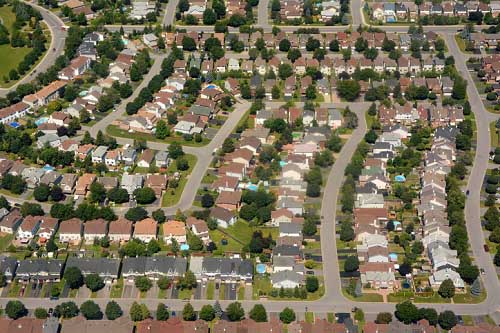Last Updated on October 24, 2023 by Neil Sharma
The fourth quarter of 2018 bore witness to the most significant housing correction in Canada in a decade.
That’s according to the Royal LePage House Price Survey, which also notes there was a 4% year-over-year rise in in the national home price, averaging $631,223, during Q4 2018.
The Greater Montreal Area, Canada’s second-largest metropolitan region, led the way in year-over-year price appreciation for Q4, surging 4.1% to reach $407,230. During this period, two-storey homes in the Montreal area rose 3.5%, for an aggregate price of $517,190. The region’s condo market also performed well, with a 4.9% hike in appreciation to reach $328,254 for the quarter.
Residents of the Greater Toronto Area spent 2018 adjusting to new mortgage rules, which—coupled with the region’s high price points—slowed movement in the real estate market. Buyers searched for affordability and they found it in Toronto’s suburbs, the condo sector, and other cities in Southern Ontario. The City of Toronto nevertheless rebounded in the fourth quarter, but that’s more than can be said for its surrounding areas. Toronto’s aggregate home price rose 8.8% in the fourth quarter of 2018, but the GTA as a whole only saw a 3.4% gain.
“The market correction in the suburbs of Toronto has been more significant than elsewhere in the country, because price increases in recent years were more extreme,” Phil Soper, Royal LePage’s CEO, said in the report. “Even as prices in the core of the nation’s largest city begin to rise again, we expect prices in the region known as the ‘905’ to remain soft, providing new families with an unexpected entry opportunity into some of the most sought-after communities in southern Ontario.”
Although economic conditions in British Columbia have been auspicious in recent years, economists forecast clouds on the horizon. The housing market is slowing down and the province’s major housing markets remain beyond reach for buyers because of exorbitant price points, but the mortgage stress test and the provincial government’s policies have at least tapered price growth.
Year-over-year price appreciation in the Greater Vancouver Area was only 2.1% during the fourth quarter of 2018, however, the aggregate price was still a whopping $1,274,831.
Neil Sharma is the Editor-In-Chief of Canadian Real Estate Wealth and Real Estate Professional. As a journalist, he has covered Canada’s housing market for the Toronto Star, Toronto Sun, National Post, and other publications, specializing in everything from market trends to mortgage and investment advice. He can be reached at neil@crewmedia.ca.









